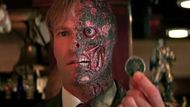Christopher Nolan's Dark Knight Trilogy is more than a superhero epic—it explores the moral ambiguity, where justice dons a cape but occasionally plays fast and loose with the law. This trilogy does not operate within a neatly segregated framework of good and evil but instead, survives in the dark in-between.
Gotham's not only terrorized by crime, it's a city struggling under the heavy weight of moral complications, distorted ideologies, and shattered heroes. Batman isn't always the white knight. The villains aren't evil all the time. And those fighting for justice lie, cheat, and manipulate to defend the system.
What makes these movies so unforgettable isn't the action or the psychological complexity; it's the way they continually force us to question right and wrong. From Harvey Dent's tragic decline to Bruce Wayne's subdued retreat from heroism, each key moment compels us to re-examine what it actually means to be "good." In a universe where intentions conflict with results, the Dark Knight Trilogy becomes more than a narrative; it becomes a reflection.
Here are nine Dark Knight Trilogy moments that will leave you doubting your definitions of heroism, villainy, and morality
Moments from the Dark Knight trilogy that will get you confused about good and evil
1) When Batman Became Gotham’s Villain to Save Its Soul

In a chilling turn of events, Batman gladly takes the blame for Harvey Dent's atrocities to save Gotham's tenuous hope. Instead of clearing his own name, he opts to become the face of fear. This twist turns the hero-villain story on its head and raises a significant question: Can doing something wrong be the only means to save what's right? Bruce Wayne's decision isn't merely selfless—it's lonely. The distinction between protector and criminal becomes so muddled that the concept of justice itself is skewed. In his transformation into Gotham's villain, Batman redefines goodness in a city on the verge of implosion.
2) Ra’s al Ghul: Justice Warrior or Fanatical Destroyer?

Ra's al Ghul subscribes to leveling the world by destroying it, making audiences question what justice is and challenge their own assumptions. His notion that Gotham must be destroyed in order to maintain greater order is paralleled with historical extremism as well as a deeper philosophical stance. Though his actions are violent without doubt, they are based on a warped idea of utilitarianism. The ethical unease comes in when we realize that Gotham is actually corrupt; he isn't wrong in his perception of the decay of the city. Christopher Nolan conceives Ra's not as a madman, but as a visionary with a horrifying blueprint.
3) The Joker’s Fiery Message That Mocked Greed

The Joker doesn't want money or power; he lives for mayhem. His plans ARE about the desire to expose society's lack of morality. By burning a literal mountain of cash, he makes a silent indictment of capitalism and corruption. His anarchic worldview strips particularly the elites of Gotham of their pretensions and puts them into bare survival. The Joker's moral framework, or his lack thereof, doesn't perpetrate evil as much as it dispels the myth of good. He is not an archetypal villain but an agent of philosophical anxiety.
4) From Hope to Havoc: Harvey Dent’s Tragedy

Harvey Dent's fall constitutes the trilogy's emotional core. He begins as Gotham's "White Knight"—lawful good incarnate. However, tragedy awaits him and unravels him. When he loses Rachel and suffers severe burns, his descent into Two-Face seems horrifyingly human. The tragedy lies not only in what he becomes but in how quickly ideals can fray under suffering. Dent starts reflecting on the villains he used to battle, governed by the capriciousness of destiny. His tale undermines the viewer's perception of stability: if the best of them can fall, who is safe? The actual darkness in Gotham doesn't correspond to its villains but to how thin the line between order and chaos is.
5) Survival Over Sainthood: Catwoman’s Moral Ambiguity

Selina Kyle isn't bad, she's practical. Growing up in the underbelly of Gotham has instilled in her the notion that survival comes before goodness. Her thefts, deceptions, and occasional friendship with Batman prove that she is a dynamic woman. She's not altruistically motivated, yet she's not selfish. The system apparently broke her, and she makes it pay by manipulating the system itself to survive. Catwoman is interesting because she refuses to be measured against the standards of conventional morality. She's not here to save the world. And yet, her decisions inevitably benefit the world, even when she doesn't mean to. It's this malleability of the consequences of her actions that makes her more interesting than most heroes.
6) Commissioner Gordon’s Lie That Shaped a City

When Gordon agrees to keep Harvey Dent's crimes a secret, he does so to save the illusion of hope. The lie stabilizes Gotham, but at what expense? For years, Gordon lives with the burden of deception, quietly observing the city he loves idolize a fallen man. Though well-meaning, the lie undermines his integrity and marks him as morally ambiguous. The character also seeks to develop a society based on lies, which automatically spawns more chaos. Gordon's choice fuels debate regarding the following: Is peace worth the cost of the truth? Gordon's guilty conscience shows how good men, under desperate circumstances, can cause the moral degradation of Gotham.
7) Bane’s Brutal Revolution That Felt Almost Righteous

Bane's rebellion in The Dark Knight Rises resonates with historical revolutions in which the oppressed classes rise violently against the dominant elites. By taking over Gotham and upending its social order, he transcends mere brute force into a symbol of revolution. The chilling twist is how plausible his ideology sounds when channeled through the city's entrenched corruption. He empowers the disenfranchised, providing Gotham with a twisted form of justice. While his actual motives are much more nefarious, his revolution is not met with outright rejection by the masses. This uncomfortable connection makes one wonder whether, after all, it is the system that needs to be fought against instead of the villain.
8) Lucius Fox’s Battle with Batman’s Inner Big Brother

Lucius Fox's discomfort with Batman's mass surveillance sheds light on a deeper ethical schism within the superhero. Batman deploys technology to track all of Gotham, a strategy that reads dictator rather than protector. Fox, being a man of conscience, is eager to assist only on the condition that the apparatus be dismantled afterward. This scene draws uneasy comparisons to actual privacy intrusions, making viewers wonder how much freedom should be lost for security. Batman's actions, while effective, appear to be intrusive and authoritarian.
9) Bruce Wayne’s Quiet Exit or the Ultimate Cop-Out?

After all the sacrifices and saving Gotham one last time, Bruce fakes his own death and goes into hiding, living incognito in Europe. Although the ending provides some sort of closure to Wayne's arc, it also presents moral questions that deal with the ideas of responsibility and self-preservation. Did Bruce Wayne leave Gotham when it needed him even more? Or was he finally obliging Alfred by listening to his advice of living for himself? Batman was not just a man, but a symbol. And by retiring the mantle, Bruce walks away from that responsibility. Selfish or wise? Cowardly or noble? The trilogy ends with a question that has no clear answers, thus encouraging debates and discussions over whether genuine heroism is only compatible with perpetual sacrifice or lies in knowing when to let go.
Love movies? Try our Box Office Game and Movie Grid Game to test your film knowledge and have some fun!
